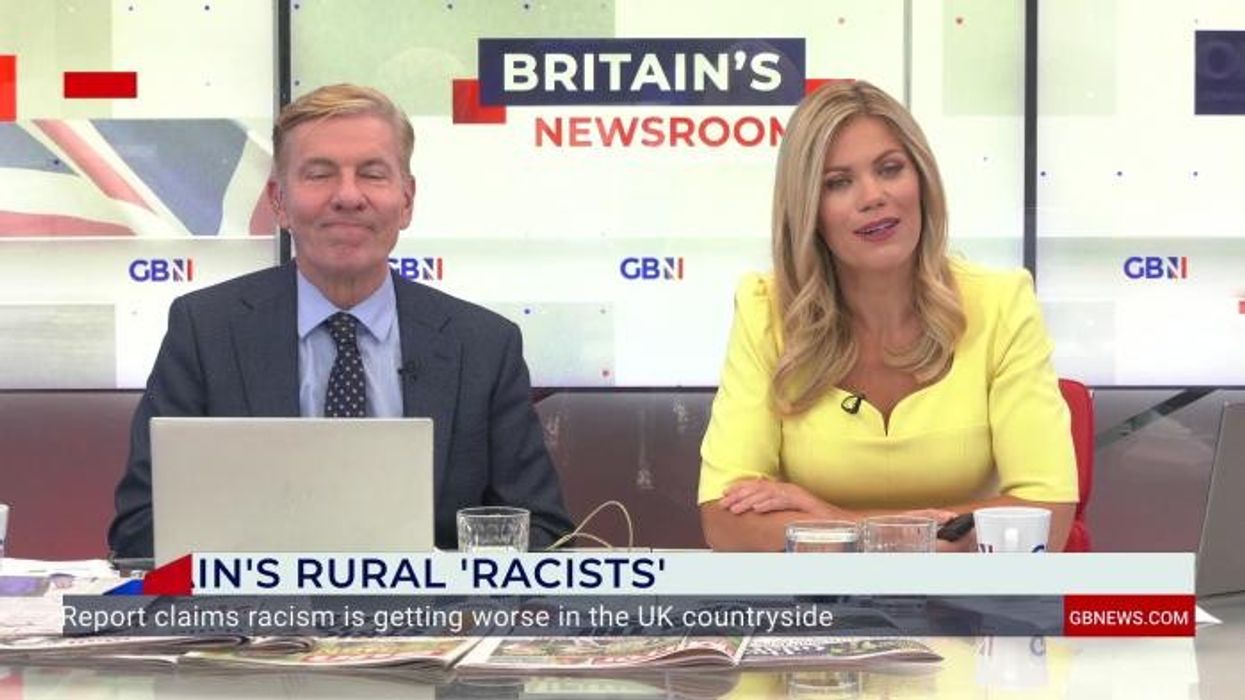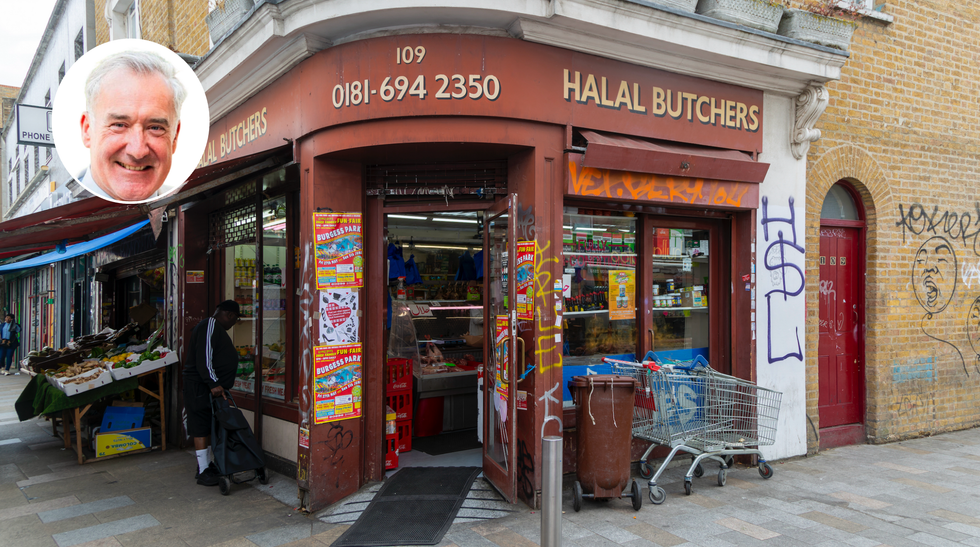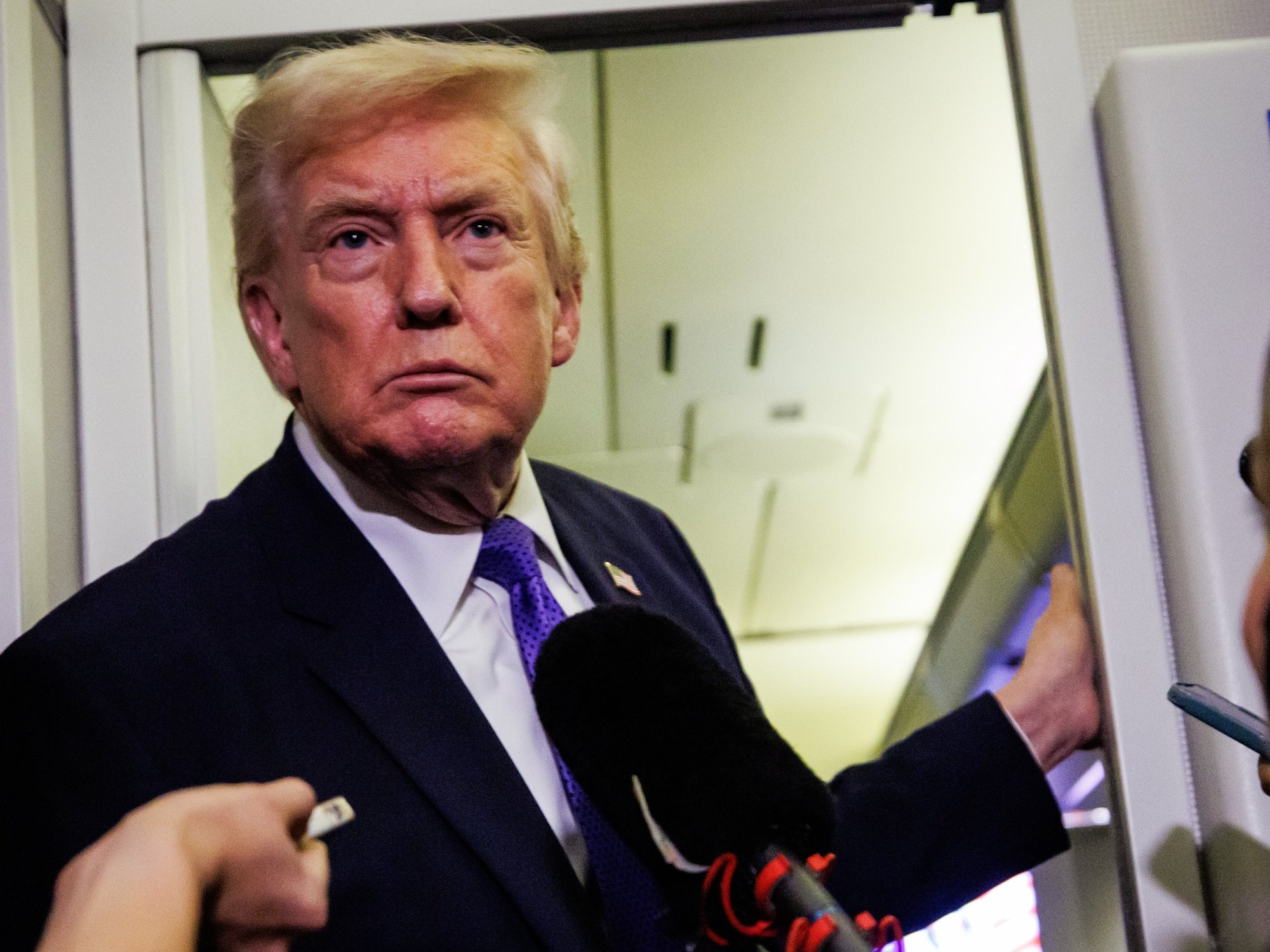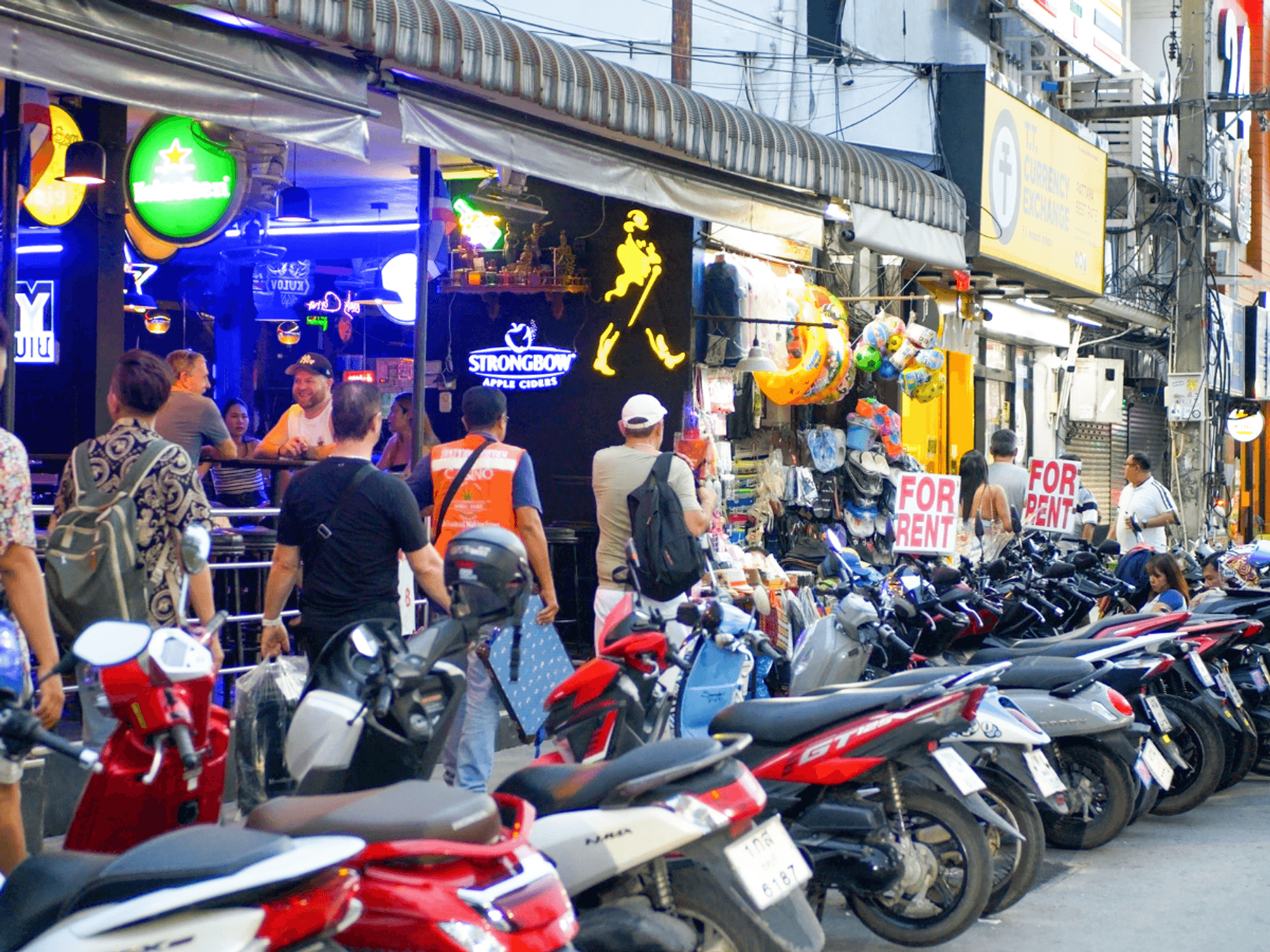We deserve to be told whether the food we are served is halal — Colin Brazier

Rural England branded 'too white' as new study demands 'more halal food' |
GB
This is no way to run a food chain, and no way to run a country, writes the former broadcaster and columnist
Don't Miss
Most Read
Trending on GB News
The slaughtermen - and they are nearly always men - who work in abattoirs get a bad press. They do a job most consumers would rather not think about, preferring to imagine that their steaks, lamb chops and chicken wings come into existence already wrapped in plastic. The work is hard, smelly and, occasionally, dangerous.
Not just all those sharp knives and hooks, but the animals themselves, as they’re unloaded from trucks and trailers and ushered towards oblivion. A mature bull weighs not much less than a small car, and is trickier to steer.
And yet, in my experience, the staff who work at abattoirs are unremittingly cheerful - even though the public - more than 90 per cent of whom still eat meat - wouldn’t thank them for it. Not that it’s always obvious where you ought to direct your gratitude, even if you wanted to.
At my local abattoir, for instance, there are no signs advertising what business is being conducted, lest a few radical Vegans decide to get busy with the graffiti, or worse.
Some of this came to mind earlier this month when I took a few pigs there for slaughter. The last gilt (young female pig) to unload from the trailer suddenly flopped down on the floor and wouldn’t budge.
Something had spooked her. A sound, a smell, I don’t know. Patiently and with a degree of care that might surprise some, the slaughterman coaxed her off the trailer and into a holding area where, seconds later, she would be despatched.

We deserve to be told whether the food we are served is halal — Colin Brazier
|Getty Images
For vegetarians, this is all too much. But I am proud of the pork we produce. The pigs live a full life in woodland, which is where pigs flourished naturally before domestication.
They grub for worms in the soil and gorge themselves on windfall fruit. But they are being fed and watered every day, not for company or ornamentation, but for food. They may not be pets, but I expect them - when the time comes - to be put to death humanely. The same goes for our sheep.
For me, that means stunning the animals so they do not suffer any unnecessary pain. This is not how some halal and all kosher meat is produced; with the livestock alive when their throats are slit.
As a Christian, I understand why Muslims and Jews want to adhere to their religious commandments. For more than a thousand years, most Christians in this country had their own strictures surrounding food consumption. Fish was for Fridays. Fasting was for Lent and Advent.
I do not necessarily want to prohibit all religious slaughter, but my toleration does not extend to willful ignorance. I want to know if the food I buy is halal or kosher (although, given how small the kosher market is, and how rapidly demand for halal is expanding, the two things are essentially incomparable).
Some restaurants and supermarkets do identify halal products on labels and menus. But it’s a grey area. Earlier this year, a former president of the Royal College of Veterinary Surgeons, Lord Alexander Trees, expressed doubts about the traceability of food and whether halal was finding its way into pies and ready-made meals without the customer knowing so.
In an article published in the Vet Journal Record, Lord Trees said: "It is almost certain that meat which hasn’t been stunned is getting into the normal food chain. Many members of the public are understandably not aware of it.”
It’s worth pointing out that the majority of halal meat is pre-stunned. What makes it halal is the religious handling of the animal between stunning and butchery. But how do I, as a consumer, know which kind of halal is in my kitchen? How do I make sure none ends up there at all?
Because things are changing quickly. According to the Food Standards Agency, the number of unstunned sheep slaughtered in the UK has doubled in the last six years, to about three million. Easter once drove a spike in demand for lamb. Increasingly, it is the festival of Eid to mark the breaking of the Ramadan fast.
A senior manager at the Agriculture and Horticulture Development Board recently noted that: "Even though Muslims represent just 6.5 per cent of the population, currently, 72 per cent of the sheep slaughtered in England and Wales are killed according to halal processes.”
In some parts of the Muslim world, Christians will find it difficult to access alcohol. Here, the State is neutral on the question of religiously sanctioned food and drink. But that is not to say there should not be a respectful national conversation about whose religious rules apply.
Because one of the sources of friction between Muslim and non-Muslim communities continues to be the sense, harboured by many - myself included - that the multicultural playing field is not always equal.
Other European states, including Belgium, Sweden, Denmark, Iceland and Estonia, do not permit slaughter without stunning first. When a ban was introduced locally in the UK, the effects were weaponised.
In 2018, after Lancashire County Council prohibited unstunned halal meat in school dinners, the Lancashire Council of Mosques accused the local authority of launching a “crusade”.
A recent report from Leicester University, which ludicrously condemned the countryside for its white supremacist leanings, also suggested that more halal food ought to be made available in rural areas. But where is the evidence that all of us are happy to eat halal?
There’s no doubt it’s in the interests of suppliers. More than 20 years ago, English prisons were criticised after it was found they served only halal food to inmates, because it made the lives of kitchen staff easier.
And you can see why - with abattoirs closing and supermarket margins tight - halal might mean cheaper, more efficient production, albeit by adopting a lowest common culinary denominator.
But that is not to say we should accept this trend towards halal, whether we like it or not (assuming there even is a choice we know about). If the most cost-effective way of slaughtering the animals we eat is to use one method, then why can’t that method require stunning?
This insidious introduction of a practice many of us do not agree with, and have never been consulted about, feels like a metaphor for much more. For halal, read mass immigration.
The British people have never been asked for their democratic assent to the demographic changes foisted upon them.
Similarly, it is easier to serve halal than to pick a fight with Muslim leaders who increasingly flex their muscles politically via a growing population. This is no way to run a food chain, and no way to run a country.
More From GB News










